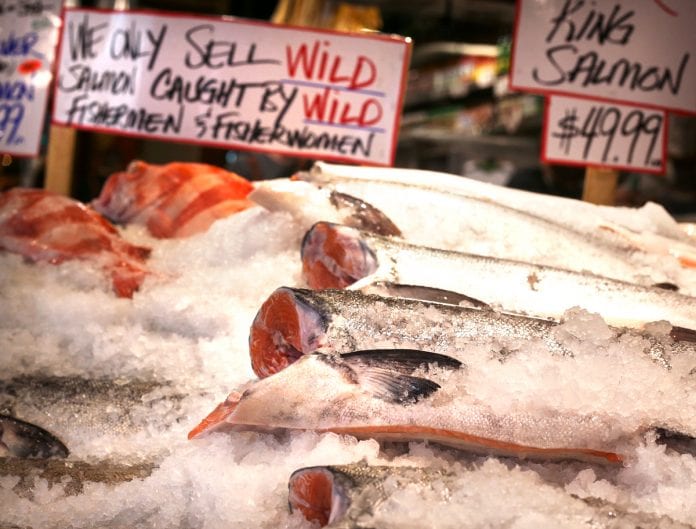
Nearly 40 participants from the headwaters to the Prince William Sound gathered in Glennallen to attend a search conference Nov. 1-3 to discuss the future of Copper River salmon. Those attending included tribal and non-tribal rod and real, dipnet, fishwheel, seine or gill-net users and federal and state fisheries managers.
Search conferences informally engage stakeholder groups in a number of collective exercises to identify a shared vision and plan. Breakout groups were used to identify our shared history, probable and ideal futures, and an action plan moving forward. Several common goals began to emerge throughout the conference. Stakeholders shared a desire to establish a single management structure incorporating science and traditional knowledge to ensure continued healthy salmon populations and fisheries from the headwaters to the sea and beyond. Working together to ensure that our fish, waters, and peoples remain healthy was a strong common goal.
This conference made it possible for people to begin to better know and understand each other. More common ground than differences among participants. We came away with a strong commitment to formally establish and to continue to strengthen the emerging partnership shared by all.
Most expressed the importance of working together to improve our grandchildren’s future.
Healthy fish, waters and peoples requires communication, collaboration and commitment among the federal, state, tribal and public partners. Grievances and disagreements must be pushed aside for the pursuit of the common good. Practicing sharing, caring and respect for each other and our fisheries must begin again, if we are to ensure that our grandchildren are able to harvest the fish that our grandparents speak of. Alaska’s rivers provide more than just opportunities to harvest fish. They are places where families connect with each other year after year. These places immediately invoke a smell, taste, and feeling that makes us whole.
We want to thank the Ahtna tribes, local participants, Native Village of Eyak, Cordova District Fishermen United, Copper River Watershed Project, the Wrangell-St. Elias National Park & Preserve, and the Alaska Department of Fish & Game for their participation in this game changing event.
Karen Linnell is the executive director of the Ahtna Intertribal Resource Commission.














